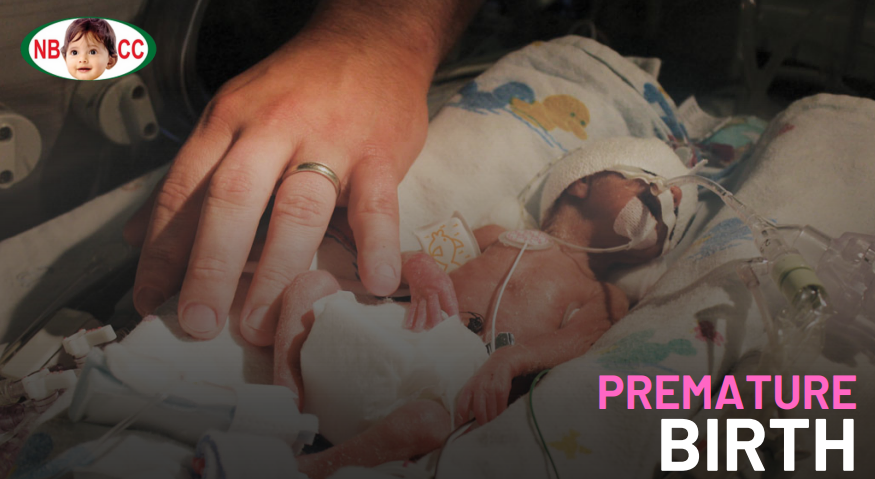Introduction:
Bringing a child into the world is a moment filled with anticipation and excitement. However, when a baby is born prematurely, the joy can be tinged with anxiety and concern. Premature birth, defined as the delivery of a baby before the 37th week of pregnancy, can present unique challenges for both the newborn and their parents. In such critical cases, specialized care and support become paramount for the well-being and recovery of these tiny fighters. This blog post aims to shed light on the topic of premature birth, highlighting the significance of New Born Care Centers (NBCCs) in providing crucial care and helping premature infants overcome their health hurdles.
Section 1: Understanding Premature Birth
1.1 Definition and Statistics:
Exploring the definition of premature birth and sharing statistics regarding its prevalence will help readers understand the scope and impact of this issue. Information such as the incidence rates and risk factors associated with premature birth can also be discussed.
1.2 Causes and Complications:
Delving into the causes and complications of premature birth will provide insights into the various factors that contribute to early delivery. This section can touch upon factors such as multiple pregnancies, maternal health conditions, lifestyle choices, and environmental factors. Additionally, it will highlight the potential health risks and long-term challenges faced by premature infants.
Section 2: Challenges Faced by Premature Infants
2.1 Immature Organ Development:
Premature babies often face difficulties related to their underdeveloped organs, such as respiratory distress syndrome, jaundice, and feeding issues. Elaborating on these challenges will help readers grasp the unique medical needs of premature infants.
2.2 Neurodevelopmental Issues:
Premature birth can also impact the neurological development of infants, potentially leading to conditions such as cerebral palsy and developmental delays. Providing information on these issues will raise awareness and emphasize the importance of early intervention and specialized care.
2.3 Emotional and Psychological Impact on Parents:
Premature birth can be an emotionally challenging experience for parents, often accompanied by feelings of guilt, fear, and uncertainty. Discussing the emotional and psychological impact on parents will create empathy and understanding, encouraging support and resources for affected families.
Section 3: The Role of New Born Care Centers (NBCCs) in Critical Care
3.1 Specialized Medical Expertise:
NBCCs are equipped with specialized medical professionals experienced in caring for premature infants. They possess the expertise needed to navigate the unique challenges faced by these babies, providing comprehensive medical care and interventions tailored to their specific needs.
3.2 Neonatal Intensive Care Units (NICUs):
NBCCs often have Neonatal Intensive Care Units (NICUs) that offer round-the-clock monitoring and specialized equipment to support premature infants. Highlighting the resources and technology available in NICUs will underscore the critical role of NBCCs in providing a safe and nurturing environment for premature babies.
3.3 Respiratory Support:
Premature infants often require respiratory support due to their underdeveloped lungs. NBCCs provide various interventions, such as continuous positive airway pressure (CPAP) and mechanical ventilation, to assist with breathing and promote healthy lung function.
3.4 Feeding Support:
Premature babies may face challenges related to feeding, such as difficulty latching or coordinating suckling and swallowing. NBCCs employ lactation consultants, specialized feeding techniques, and nutritional support to ensure that these infants receive the nourishment they need to grow and thrive.
3.5 Developmental Care and Early Intervention:
NBCCs emphasize developmental care and early intervention programs to support the neurodevelopmental needs of premature infants. Through sensory stimulation, developmental therapies, and close monitoring, these centers strive to optimize the long-term outcomes of premature babies.
Section 4: Family-Centered Care and Emotional Support
4.1 Parental Involvement and Support:
NBCCs recognize the importance of involving parents in the care of their premature infants. Encouraging parental presence, providing education and training, and fostering open communication with healthcare professionals contribute to the overall well-being of both the infants and their families.
4.2 Emotional Support:
Premature birth can be an overwhelming experience for parents. NBCCs offer counseling services, support groups, and access to social workers to address the emotional and psychological needs of families. Highlighting these resources will underscore the holistic approach of NBCCs in supporting the well-being of both infants and parents.
Conclusion:
Premature birth poses unique challenges for newborns and their families, requiring specialized care and support to navigate this critical phase. New Born Care Centers (NBCCs) play a vital role in providing comprehensive medical interventions, emotional support, and a nurturing environment for premature infants. Through their expertise, technology, and family-centered approach, NBCCs ensure that premature babies receive the critical care they need to overcome challenges and thrive. By acknowledging the significance of NBCCs in the recovery of premature infants, we can raise awareness, advocate for better resources, and offer hope to families experiencing the journey of premature birth.

